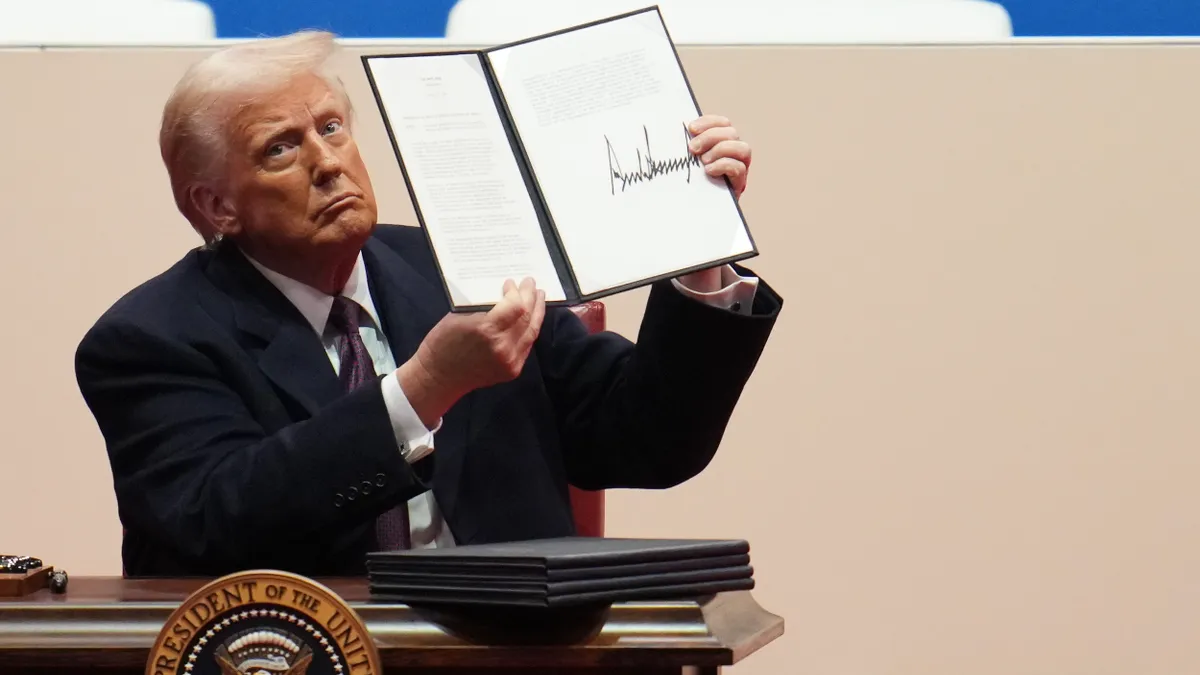Dive Brief:
- The House Committee on Transportation and Infrastructure held its first hearing under the 119th Congress on Jan. 15, focusing on its top priorities for the next two years.
- U.S. Rep. Sam Graves, R-Mo., committee chair, named reauthorization of surface transportation legislation as one of its top priorities. Congress has historically provided surface transportation funding in five-year blocks for highways and mass transit. The 2021 infrastructure law currently funds those programs and will expire at the end of fiscal year 2026.
- The Infrastructure Investment and Jobs Act “was one of the most substantial investments that Congress has made in our country’s future,” said Austin, Texas Mayor Pro Tem Vanessa Fuentes, representing the National League of Cities at the hearing. “While the 119th Congress will make many national budget decisions, reducing infrastructure investment from IIJA levels would be a $1 trillion economic mistake,” she added.
Dive Insight:
Graves, who is serving his second term as chair of the transportation and infrastructure committee, and Sean Duffy, the nominee for secretary of the U.S. Department of Transportation, along with President Donald Trump are likely to be key drivers of transportation policy in the coming years.
Fuentes said the U.S. should “continue to move toward an outcome-based transportation structure where each region is fully empowered to support national goals and collaborate to set prioritization of projects with our states.” She also highlighted the safety initiatives in the IIJA such as the Safe Streets program and grants that go to road safety projects. “A robust federal partnership will ensure that local governments can continue to be a powerful force in solving national challenges like road and rail safety,” Fuentes said.
One of Trump’s long-standing aims is to streamline environmental reviews. Louisiana Gov. Jeff Landry, speaking at the hearing, asked the transportation committee to “eliminate regulatory barriers, streamline permitting, and implement the ‘One Federal Decision’ rule.” That rule, issued by a Trump executive order in 2017, required federal agencies to complete environmental reviews for major projects within two years. It was subsequently repealed by Biden but later reinstated with changes.
Trump’s “day one” executive orders on Monday repealed former President Joe Biden’s target that 50% sales of new vehicles be zero-emission by 2030 and included setting policies that could eliminate subsidies and tax credits for electric vehicles. Trump also ordered federal agencies to halt funding for electric vehicle charging stations under the $5 billion National Electric Vehicle Infrastructure formula program.
The new president set a freeze on all newly proposed rules, and those proposed but not yet published in the Federal Register, until a Trump appointee reviews and approves them.












